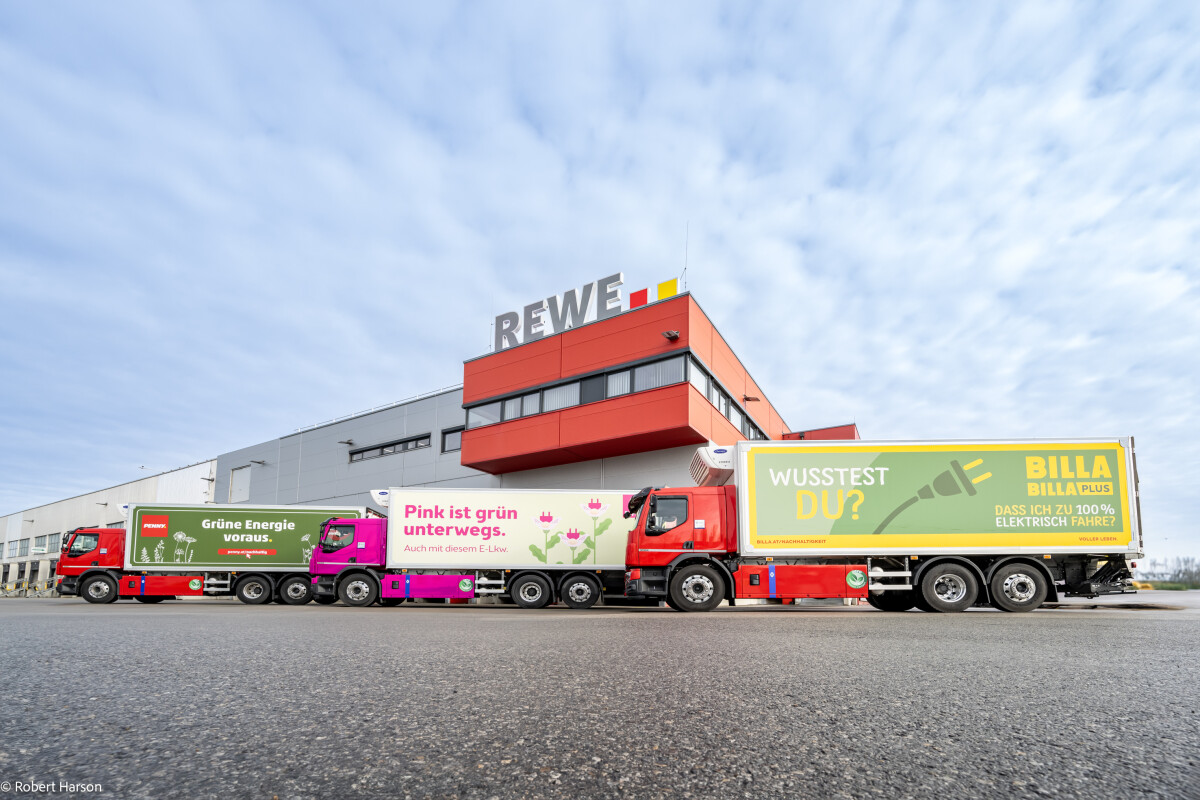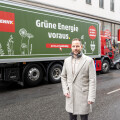REWE Group Austria focusses on green logistics: e-trucks now in use
REWE Group Austria is once again demonstrating its commitment to sustainable mobility: three new e-trucks - each branded in the BILLA, BIPA and PENNY colours - have been integrated into the fleet and are now being used in the inner-city area of Vienna. They will be supplying the districts of 1010 and 1020 Vienna as well as Pilotengasse, the location of Austria's greenest BILLA store. With a range of over 300 kilometres and a battery capacity of up to 375 kWh, the vehicles are specially designed for urban areas, where many start-stop operations are necessary.

REWE Group Austria focusses on green logistics: e-trucks now in use / Copyright: © Robert Harson, Reproduction for PR purposes free of charge
DownloadAt a glance
-
REWE Group Austria adds three e-trucks to its fleet - first deployments in urban areas already completed
-
Up to 84 tonnes of CO2 saved annually through the use of the new vehicles
-
Electric lorries offer a range of over 300 km and efficient 2-shift operation
-
Investment in sustainable logistics as part of the climate strategy









